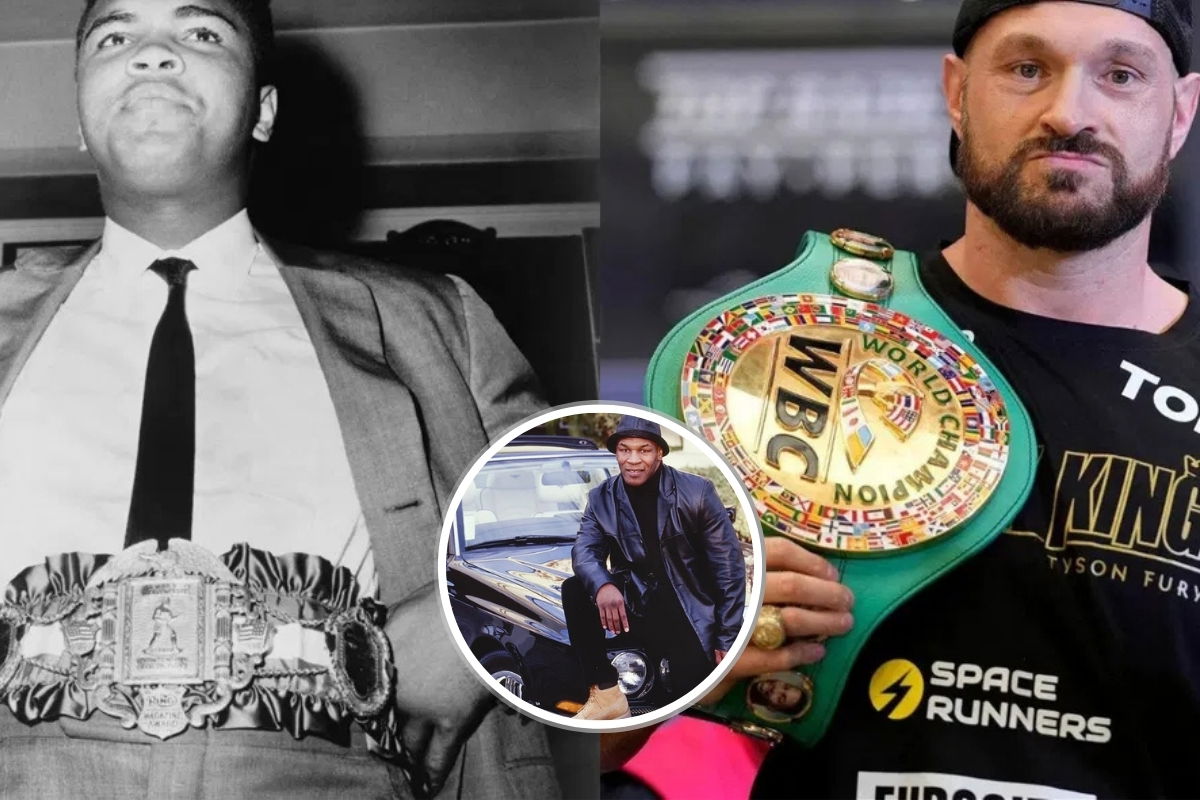
Imago
Tyson Fury Ali Mike Tyson

Imago
Tyson Fury Ali Mike Tyson
Boxing’s financial landscape has always been a wild ride, but 2024 turned it into a full-blown circus—one where retired heavyweights out-earn active legends and social media stars rub shoulders with Olympic champions. The man at the center of this absurdity? Tyson Fury, the Gypsy King, who somehow managed to bank a staggering $147 million in a single year after stepping away from the sport.
Watch What’s Trending Now!
The jaw-dropping figures first surfaced in a viral Instagram post by former Olympian Tony Jeffries, who laid out the year’s top earners with a mix of awe and disbelief. What made the list so shocking wasn’t just the numbers—it was the names attached to them, the legacies they surpassed, and the sheer audacity of Fury’s post-retirement payday.
Starting at the bottom of the pile, but still in rarefied air, was Jake Paul. The polarizing YouTube star turned prizefighter proved once again that controversy sells, raking in $48 million from his boxing ventures alone. Love him or hate him, Paul’s ability to monetize spectacle has rewritten the playbook for crossover athletes.
ADVERTISEMENT
Just above him sat Anthony Joshua, the British heavyweight whose star power remains undeniable. Even in what many considered a rebuilding phase, AJ pulled in $60 million—a figure that didn’t even include his lucrative endorsements. Then came Canelo Álvarez, boxing’s most consistent cash cow, who added another $73 million to his ever-growing fortune.
But here’s where things got surreal. As Jeffries pointed out, Muhammad Ali—the man who transcended the sport—earned between $60 and $70 million over his entire career when adjusted for inflation. Yet in 2024 alone, Oleksandr Usyk nearly doubled that with $122 million, a testament to how drastically boxing’s economy has shifted.
And then there was Fury. The man who retired in 2022 somehow topped them all, hauling in $147 million without even being an active fighter. How? By mastering the art of the event. Whether it was exhibition bouts, documentary deals, or simply staying in the headlines, Fury turned his absence from the ring into a financial windfall.
ADVERTISEMENT
View this post on Instagram
It’s a stark reminder of how much the sport has changed. Ali and Mike Tyson built their fortunes through blood, sweat, and countless battles—with Iron Mike accumulating a peak net worth of $300 million during his career (though financial troubles later reduced it significantly, with current estimates placing it around $10 million in 2024). Fury? He did it by playing the game smarter—and proving that in modern boxing, the biggest paydays don’t always go to those who throw the most punches. As Jeffries mused in his post, “Who will be the big pays in 2025?” One thing’s for sure: betting against Fury would be a fool’s errand.
ADVERTISEMENT
Alfie Best’s financial blueprint for Tyson Fury’s super fortune
Meet Alfie Best: the self-made “Gypsy Billionaire” and property tycoon behind Wyldecrest Parks, a Lancashire-based caravan empire that propelled him to Monaco-dwelling magnate status. With his rags-to-riches journey now chronicled in an Amazon Prime documentary, Best recently turned his attention from real estate to ringside royalty—delivering blunt financial counsel to Morecambe’s heavyweight legend Tyson Fury and his $147 million fortune.
In a no-nonsense interview with RacingTipster.com, the entrepreneur dismissed speculative investments and urged personal accountability: “I’d tell Tyson to never invest in what other people are telling you to, unless you’ve researched it first,” Best declared. “Because otherwise, if it goes wrong, you only tend to blame that person that gave you the advice as if they’re a guru. Always be responsible for your own decisions.”
ADVERTISEMENT
When pressed for concrete guidance, Best—whose own wealth stems from property—left no ambiguity: “I’m in love with property, so my advice for him would always be based around investing in property.”
Top Stories
Floyd Mayweather Faces Threat of Losing Post-Boxing Empire as 8-Figure Debts Mount: Report

Anthony Joshua Discharged From Hospital as Police Arrest Driver Over Fatal Car Crash in Nigeria

“Rest in Peace”: Condolences Pour In as Legendary Coach Freddie Roach Mourns Personal Loss

Jake Paul Faces Another Setback as WBA Drops Him After Anthony Joshua Knockout Loss

Floyd Mayweather Breaks Silence as $402M Real Estate Deal Goes Allegedly Wrong

The directive mirrors Best’s empire: passive-income parks that sidestep stamp duty and leverage tax efficiencies. For Fury, whose post-retirement earnings dwarf legends like Ali, it’s a blueprint to transform ring riches into lasting legacy—one brick at a time.
ADVERTISEMENT
ADVERTISEMENT
ADVERTISEMENT

